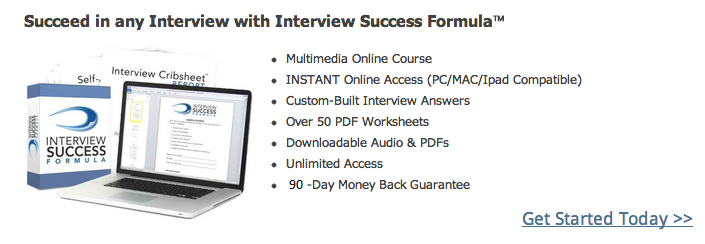 The manufacturing industry is one of the most misunderstood employment sectors by the U.S. public. I am sure the average American most likely believes that the U.S. manufacturing industry is shrinking and the job opportunities are few and far between. Well, the truth is just the opposite of this gross misconception. In fact, there is a severe shortage of U.S. manufacturing workers despite the job losses over the past few years. Why all the confusion? Well, this industry is not monolithic. The manufacturing industry sector encompasses much more than a "union job" at an automotive plant in Detroit. Pharmaceutical, semiconductor, home products, machinery, heavy equipment, and hundreds of other products make up the U.S. manufacturing industry.
The manufacturing industry is one of the most misunderstood employment sectors by the U.S. public. I am sure the average American most likely believes that the U.S. manufacturing industry is shrinking and the job opportunities are few and far between. Well, the truth is just the opposite of this gross misconception. In fact, there is a severe shortage of U.S. manufacturing workers despite the job losses over the past few years. Why all the confusion? Well, this industry is not monolithic. The manufacturing industry sector encompasses much more than a "union job" at an automotive plant in Detroit. Pharmaceutical, semiconductor, home products, machinery, heavy equipment, and hundreds of other products make up the U.S. manufacturing industry.
What is key to know about this industry is that the products manufactured in the U.S. are manufactured here for a reason: they are high-precision, high quality products with complex manufacturing processes that require workers with a high level of job skills. Too often the news media, talk shows, and the Sunday editorial opinion pages bemoan the death of U.S. manufacturing and cite statistics about the loss of manufacturing jobs to China and India. While this does happen, usually due to but not limited to cost factors, the manufacturing jobs that are moved to low-cost zones do not require a high level of skills. Of course, there are always exceptions to any rule. But a job seeker interested in a U.S. manufacturing career will find a lot of opportunities in the U.S. if he or she has the skills and can work on a team.
Let me talk a bit about the skills required in the U.S. manufacturing industry. Typically, a worker will not manually manufacture a component -- a machine or industrial robot does. So, the manufacturing skills needed are not the ability to use hand tools such as a screwdriver, hammer or socket set. Rather, the worker needs to know how to operate a machine that manufactures the parts. Computer Numerical Control (CNC) machine tools and industrial robots require computer programming skills. Workers who operate these machines need to be able to understand the machines, translate the instructions, read the technical manuals, and write the programs so the machines make the parts according to specifications. This requires math, science, engineering (mechanical and electrical) and computer skills.
In addition, the U.S. manufacturing industry operates under a number of quality control schemes such as ISO 9001, Six Sigma, and other statistical process control systems. Knowledge of these systems and the regulations that oversee the manufacturing processes is also required. Since there are a variety of materials used in U.S. manufacturing, some workers need to know not only materials engineering but also the OSHA regulations for the handling of Hazardous Materials (HAZMAT). What I have mentioned thus far about the skills required in the U.S. manufacturing industry is only the tip of the iceberg. All jobs require knowledge of safety and each industry has specific knowledge for that industry. In other words, a qualified pharmaceutical manufacturing worker is qualified for that industry and a qualified semi-conductor manufacturing worker is qualified for that industry. Their skill sets are not necessarily interchangeable.
So, after graduating from a manufacturing technician certification program or a manufacturing engineering degree, how do you prepare for your first interview?
Well, no one is going to expect you to know specific details about the manufacturing equipment used at a specific facility. Nor will your interviewers expect you to recite verbatim every OSHA Safety regulation, the National Electrical Code (NEC) or the Standard for Electrical Safety in the Workplace (NFPA 70E). You will be trained on the specific knowledge you need to know to perform your job. But you will be given some technical questions to answer.
You may even be asked what logical steps you take to troubleshoot a piece of equipment. Expect to give some examples of your leadership, multi-tasking, self-directedness, ability to work environment with changing priorities, and your ability to work independently and on a team. In other words, they are going to ask you technical, standard, and behavioral questions. Remember, a manufacturing plant makes its money by manufacturing products with the least amount of materials in the safest manner possible and in the shortest period of time. These conditions define stressful work. So, getting along with people is as important as knowing how to read a technical manual to program a programmable logic controller (PLC).
Before I discuss some specific interview questions in manufacturing industry, let me mention the fact that military veterans are ideally prepared for a manufacturing career. All the military service branches have technical training schools that military service members attend after basic training (boot camp). These training schools are primarily equipment maintenance schools where they learn some theory, equipment operation and troubleshooting. In addition, they spend ample time on personal safety and developing a good work ethic. So, the manufacturing industry is a good career transition choice for many military veterans. Of course, there are differences and interviewing is one of them.
Let's go through some typical interview questions:
Technical
- Ohm's Law: In what type of electrical circuit does current remain the same and why: series or parallel?
- Describe the process of diagnosing a heat exchanger problem?
- How did you help your current employer improve quality?
- What is pH?
- Draw a circuit you have experience on you, describe a problem you had with it, and how you fixed the problem.
- How do you set up a multimeter to measure current on a three-phase induction motor?
- What is a Silicon Controlled Rectifier (SCR) and how does it work?
Standard
- How do you treat someone who isn't pulling his weight on a project?
- Where do you want to be in 5 years?
- What is your biggest achievement?
- What was the worst work situation you have had?
- Why do you want to work here?
- Describe your strengths and weaknesses.
Behavioral
- Describe a time where you had difficulty working with a team member. How did you resolve the problem?
- Describe a time you exhibited leadership.
- Describe a time where your boss changed a priority. How did you handle it? Did you meet the goal?
- Describe a time when prevented a problem?
None of these questions are rocket science! That is, they aren’t immensely difficult but they do require some planning and preparation. I always recommend that prior to an interview, a job candidate should review the job ad and read the requirements and qualifications a couple of times. Then, review some of the basics on the type of equipment you are likely to work with. When it comes to the standard and behavioral questions, write out the answers and memorize them. If you have not interviewed a lot, it’s hard to wing the answers.
If you deliver your answers in the interview with a tone of uncertainty, you are likely to get passed over. One final word: smile and be friendly. If you get hired, you will be working with your colleagues for long periods of time. It’s easier to work around someone you like than someone you don’t.


